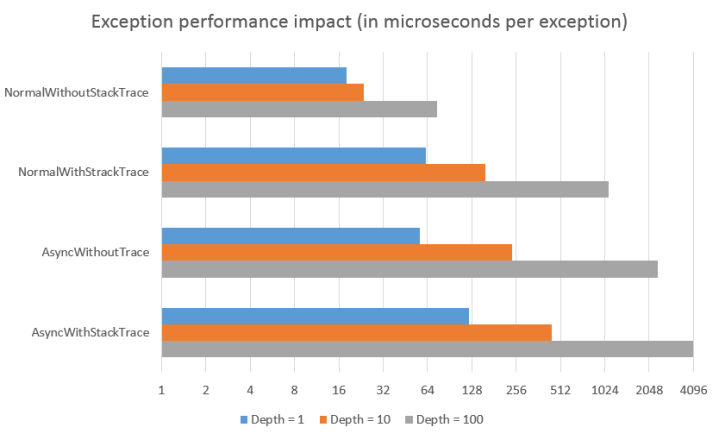Hi there!
I made few measurements with cool DotNetBenchmark library written by Andrey Akinshin:
1. I’m awaiting async method that throws deep in callstack and after catching i get StackTrace
2. I’m awaiting async method that throws deep in callstack
3. [COMPARISON ONLY] I’m awaiting async method that returns deep in callstack (without exception)
4. I’m calling normal method that throws deep in callstack
5. I’m calling normal method that throws deep in callstack and after catching i get StackTrace
Code is here (don’t forget to add DotNetBenchmark library, i used 0.78 from nuget)
For stack depth = 100 results are following
For stack depth = 10 results are following
For stack depth = 1 results are following
CAUTION: Logarithmic scale!
From measurements we can see:
1. Getting stacktrace can slowdown your exception handling code significantly for deep stacks.
2. awaiting methods is very slow itself and exceptions don’t influence on its performance (if not to get stacktrace)



